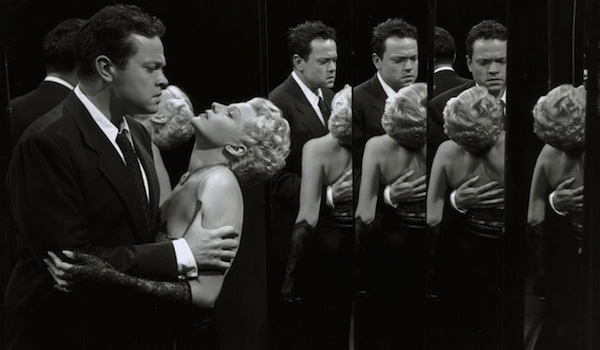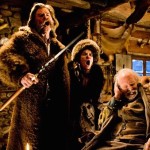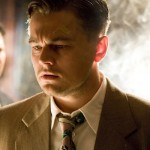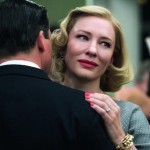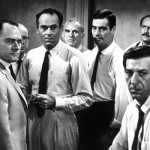The Lady from Shanghai Review
Ask anyone other than a serious film buff, and they will tell you Orson Welles only made one great film, his first, “Citizen Kane.†That’s understandable. “Kane†is arguably one of the greatest films ever made. But the actor/writer/director’s resume is more than just that, and saying otherwise is a great disservice to his memory. I’ve talked in length about his incredible acting in “The Third Man.†In “The Lady from Shanghai,†his acting isn’t great, but his direction is nearly flawless. How this film has escaped me all these years is baffling and a bit frustrating, but I’m so glad I finally got around to seeing it. It’s classic noir at its best.
Michael O’Hara (Welles) is a hard-drinking, rough-and-tumble Irishman in New York. One night, he rescues the beautiful Elsa Bannister (Rita Hayworth) from being mugged in Central Park. At that moment, he was smitten. He walks her home, confiding in her that he once killed a man, but only just before they depart does she reveal she is married. Her husband is the lawyer Arthur Bannister (Everett Sloane) who prides himself on being the best defense attorney around.
After meeting Arthur in a bar, Michael reluctantly agrees to serve aboard his luxury yacht. But things are miserable. He loathes Arthur, longs to be with Elsa, and to make matters worse, Grisby (Glenn Anders) – Arthur’s law partner – asks Michael to be his accomplice in his own convoluted murder plot. Grisby is to fake his own murder so he can run away undetected. In return for $5,000 (enough money to run away with Elsa), Michael will admit to the crime, but won’t go do jail because a body will never be found. Soon, real life becomes more convoluted than this plot, and Michael finds himself on trial with Arthur as his attorney.
The plot is labyrinthine to say the least. It stays at least one step ahead of us at all times, and like Michael, we never know who is being honest with him. I found the first twenty minutes or so to be pretty dreary, to be honest, but what comes next more than makes up for it. It’s an hour of cinema that’s not to be missed by any film lover. And the fun house conclusion – I’ll just say it’s one of the finest, most riveting sequences I’ve ever seen.
The acting is quite solid. It’s not the film’s best quality, but with the exception of Welles’s accent, I didn’t have too many complaints. Like I said, Welles should have either practiced his Irish brogue a bit more or just written the character with a different nationality. Other than that, though, he’s spot on. He knows how to inhabit a character better than most actors in history, and his take on Michael is no different. He doesn’t want to be involved with these people. It seems like they wear him out. But his love for Elsa keeps him going. Despite having been married, he and Hayworth don’t have all-time great chemistry, but they get by alright.
Other than some clunky moments with Welles, Hayworth is terrific. She looks and acts the part of a spoiled wife hiding who knows how many secrets, but she still keeps the vulnerability that allows us to root for her and Michael to end up together.
The other actor with significant screen time is Everett Sloane, who worked for Welles before in “Kane†(he played Mr. Bernstein). Arthur is probably the film’s most complex character. He’s a cocky lawyer on the one hand who bullies his wife and treats with workers with disrespect. But we sort of pity him because he is being cheated on and always appears to be a step behind the action. Sloane plays him as someone with a lot of charisma, but not a classic antagonist.
Unsurprisingly, the reason “The Lady from Shanghai†is to be remembered is the magnificent direction of Welles. As I said, the fun house/hall of mirrors scene is unforgettable. But there are other fascinating scenes as well. The big reveal takes place during some kind of Asian theater, which contrasts drastically from the chaotic courtroom scene right before it. Welles just knows how to utilize every aspect of the film – from the settings to the editing, the sound to the costumes, and everything in between – to maximum effect. In the hands of a lesser director, this could have been a big miss. Welles turns it into a masterpiece.
I’m a big fan of film noir, as you loyal readers all know. I find its plots and conventions fascinating. This film has a few minor flaws, but on the whole, it was one of the more enjoyable noirs I’ve seen. Welles proves, despite the belief of some, that he’s not a one-trick pony, and it makes me excited to check out more of the legendary figure’s films in the future.

